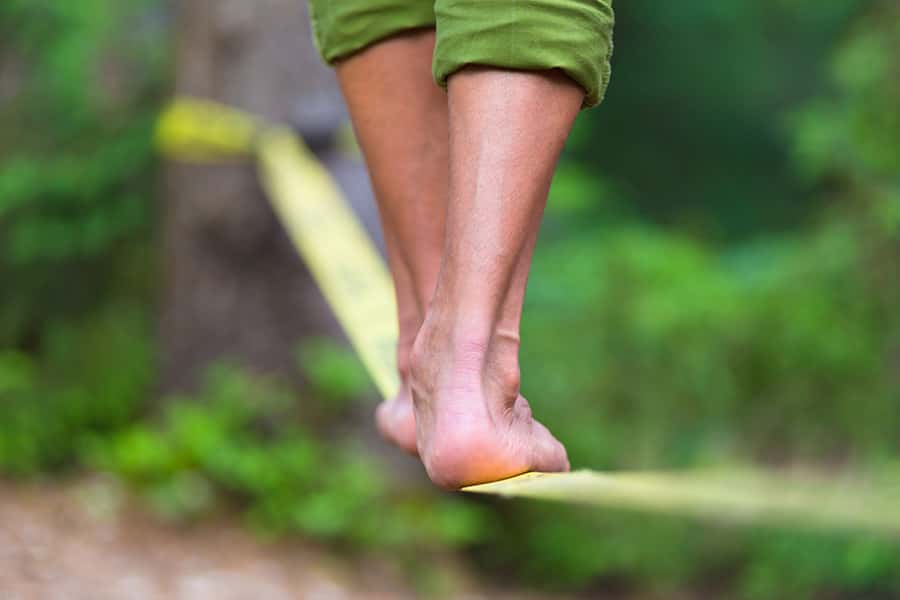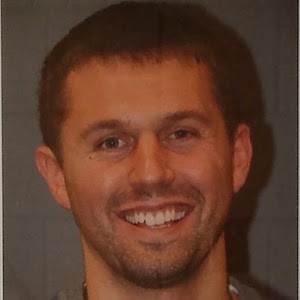Dream Journal
 Note From Dr B.
Note From Dr B.
The suggestion associated with the 12-step principle of “discipline and action” is as follows: “We are continuing to remove the barriers than can block forward sober growth. We are getting ready to sweep our side of the street clean. Make a list of all those people you have harmed both through actions and not being present or living up to obligations.” In the context of recovery, the term “discipline” is synonymous with self-control. It does not refer to punishment, nor does it refer to a harsh, unforgiving way of life. The term “action” suggests both making amends and being present during recovery. Taking action is meant to ease the transition into sobriety and strengthen connections that were weakened during the period of active addiction.
At Two Dreams, clients engage in both process groups and individual therapy sessions to explore wrongdoings and brainstorm possible solutions. We encourage reconciliatory conversations with friends and family, and offer guidance on strengthening social connections. Additionally, we encourage self-discipline in the form of mindfulness. Clients engage in HALT (hungry, angry, lonely, tired) checks throughout the day to monitor their vital signs and moods. Instead of acting irrationally in response to triggers, these regular checks are designed to keep clients disciplined and planning ahead of low moods. Discipline and action are cornerstones of the Two Dreams curriculum; call 504-510-2331 today if you are interested in learning more about our program.
Sincerely,
Dr. B
Sources Cited: http://www.soberrecovery.com/addiction/addiction-recovery-the-12-steps-and-the-principles/

Discipline and Action — Guest Writing by Kristen Anderson
When one thinks of the word discipline, they may think of some form of punishment. According to Webster’s Dictionary, discipline is defined as “training to act in accordance with rules.” Discipline, from the perspective of recovery, directly relates to the additional meaning of the word, “activity, exercise, or a regimen that develops or improves a skill; training.” The steps of AA are not easily achieved without practice and putting effort forth to remain sober, which includes an immense amount of discipline. A baseball player needs to attend practice on a regular basis to continually refine his fundamental skills before game day. If this ball player doesn’t practice his throws to first base or refine his batting stance, his game time play will be impacted in a negative way.
Those in recovery need to consistently practice the steps and the life of sobriety. Without this practice and discipline, they will find themselves using once again. In treatment and the AA program, clients are taught structure, coping mechanisms, and personal accountability. Discipline in the program is a life-long commitment and cannot only be utilized in the safety and comfort of a treatment facility. Those in recovery can be taught all the rules and methods, but they also must put these tasks into action. Just like the ball player, there is never perfection. The individual in recovery will never be perfect but managing a schedule or attending regular AA meetings, maintaining a relationship with a sponsor, and utilizing coping mechanisms in times of duress. The individual can see progress and soon find that these steps and ideas become easier the more they are practiced.
Theme Analysis: Discipline and Action

Google’s definition for discipline is as follows: the ability to control ones feelings and overcome ones weaknesses; the ability to pursue what one thinks is right despite temptations to abandon it.
When I entered an addiction treatment program in 1984, I signed an agreement to not drink or use any mind or mood-altering substances. When I signed that document I really didn’t believe that I would not use anymore, but I did think that I could try to avoid substances (including alcohol) one day at a time… sometimes it was one hour and even one moment at a time. So my first exposure to the world of discipline was that, in spite of the fact that I always believed a drink would make me feel better, I decided to do something different and not act on my desires. By not using, I began to see the value of abstinence. A sponsor once shared with me that I needed time away from substances to be able to see what my life had become. They said that my worldview needed to change and that change was impossible as long as I remained subject to substance use.
However, abstinence was just the beginning. While in treatment I was advised that I could not stay sober without attending AA meetings. I was also encouraged to get a home group: a familiar group that I could attend on a regular basis. Abstinence led to attending meetings, and attending meetings led to committed participation in the group. As my journey continued, I discovered that more action was required and that involved the application of the twelve steps in my life, as well as the adaptation of spiritual and moral principles.
Discipline alone is not enough for sustained recovery, as indicated on page 32 of the Big Book:
“Then he fell victim to a belief which practically every alcoholic has–that his long period of sobriety and self-discipline had qualified him to drink as other men.”
In recovery we come to understand that the AA program of recovery is one of discipline and action; both principles are necessary to proceed in the recovery process. While we may not follow the program perfectly, the key to recovery is simply making an effort to continue on the right path in spite of wanting to give up or feeling unworthy or ineffective.
An old friend once shared with me that “discipline is the bridge between thought and action.” Recovery is a process and the two keys to success, I believe, are discipline and action.
News Highlights
Medication-Assisted Treatment for Inmates: A Controversial Issue
Medication-assisted treatment (MAT) has been shown to reduce relapse and overdose rates in many cases. Jails are hesitant to provide these services, however, since drugs such as methadone and buprenorphine are opioids. The FDA has approved Probuphine, a slow-release buprenorphine implant, as a means to change warden attitudes about MAT and consequently reduce substance-related crime, criminal justice, and health care costs.
The FDA is Taking Action, Incentivizing the Development of Pain Medicines That Aren’t As Easy to Abuse
Opioids are a highly effective method of pain relief, but they also have a high potential for abuse. The FDA is incentivizing Pharma to create safer, more viable solutions for patients in pain. As a result, some pharmaceutical companies are working to develop abuse deterrent entities and new chemical formulations that reduce the risk of abuse. These groundbreaking innovations will take time to develop, and in the meantime clinicians should do their best to provide appropriate treatment that minimizes risk.
Featured Staff Member Questions: Steve Taylor
 Q. What is your current position and job description?
Q. What is your current position and job description?
The title of my position is Lead Therapist. The primary aspects of my job are to facilitate group and individual therapy with our clients. Addiction is a family disease so I also work to help loved ones better understand addiction, recovery, and how they can heal themselves.
Q. Where did you work before Two Dreams and what did you do?
Hazelden Betty Ford Foundation in Minnesota as an Addiction Counselor.
Q. What has your journey been like at Two Dreams?
It’s been wonderful. The team has welcomed me with open arms and I’ve felt supported from day one. I really wasn’t looking to change jobs when this opportunity found me. It has been my experience that these unexpected opportunities are the most rewarding. I think this is right where I’m supposed to be.
Q. What made you get into this profession?
It started with my own recovery. During my active addiction I was really struggling to find my passion. I was drawn to the social services but unsure of myself and generally ambivalent. However once I focused all of my energy towards my own health, I became fascinated with addiction and how people can best recover.
Q. What is the most gratifying part of your job?
That’s easy. It’s the calls and emails from alumni saying “Hey I’m celebrating 2 years!” Or “I’m doing great and have got my family back!” The updates and messages of recovery from alumni give me energy and lift my spirit.
Q. What do you like about the Two Dreams program?
There are a number of things. The staff to client ratio is the best I’ve ever been a part of. Programs advertise individualized treatment but we really do it here. I also love how we have the ability to work with people longer term and help them reintegrate by working and or going to school in our Phase 2 program. Another great thing is the location. The beach and the ocean are a spiritual place for many people. Often clients who struggle to connect with themselves and their spirit are able to do so here.
Q. Where did you go to college and post-grad and what did you study?
I went to Linfield College in Oregon for my undergraduate degree in Social and Behavioral Science. I attended the Hazelden Graduate School of Addiction Studies in Minnesota for my masters in Addiction Studies.
Q. How would others describe you? How does your personality complement the work you do?
I think people see me as compassionate, easy going, and intelligent. I believe my personality helps me to establish trust and confidence with clients as well as being a reliable and positive force with the members of our team.
Q. What do you like to do when not at work? What are your favorite hobbies?
I enjoy spending time with my girlfriend and my dog, relaxing at the beach, watching movies, and working out. I also still enjoy competitive basketball and play in leagues year round.
3 P’s – August 2016
Physical Well-Being, Personal Productivity, Mental Peace

Theme: Discipline and Action
The 3 P’s, physical wellbeing, personal productivity, and mental peace, are largely based on the concepts of discipline and action. “Discipline” is the practice of behaving in a way that is consistent with what you know you should do, regardless of what you desire. Taking “action” refers to performing in a way that demonstrates your discipline. These concepts are important in both early recovery when the brain and body are still healing and in long-term recovery when maintenance is the main goal.
Physical wellbeing is a struggle for many people. There is an excess of unhealthy, yet readily available food and it takes discipline to choose a healthy diet instead. It also takes discipline to choose exercise over lounging, and going to the gym over heading to the movie theater. I find that if you can make being healthy fun it’s a lot easier to take action and maintain good habits. Find healthy foods that you enjoy and add them into your diet. Look for a recreational sport that you like and sign up for a team. Mix up your healthy routine from time to time to avoid getting bored or fatigued; keeping it fun will make staying disciplined much easier.
Personal productivity is also a struggle for everyone from time to time. Even if you love what you do, some days it just loses its luster and showing up for work on time with a good attitude feels like a burden. Keep a list of reasons why you love what you do and reference it whenever you don’t feel like taking action. Remember that discipline and hard work always pays off in some form or another. At the end of the day, feeling productive and contributing to society will make you feel much better than if you just lounge around.
Mental peace may feel like the most difficult realm to maintain discipline in, because so much is out of our control. Everyone has busy days in which it feels like there’s not enough time to accomplish everything that needs to be accomplished. Make a list of quick stress-relieving exercises (like deep breathing or counting to 10 slowly) that can help you stay on task. Keep a motivational image board of pictures that inspire you and keep you feeling peaceful. Set priorities, and you’ll find that keeping a disciplined and peaceful frame of mind is easier than it sounds!
Outer Banks Community Update August 2016
Community – Discipline and Action
It’s a busy time of year on the Outer Banks of North Carolina for vacationers and locals alike! The rental houses in all areas along the stretch of sandbar are full and traffic is heavy. Since the vacationers are still around, local businesses are booming. The stores are all full of shoppers checking out the merchandise, for example the delicious local favorite Duck Donuts.
Clients at Two Dreams Outer Banks are implementing discipline and action into their routine by following and participating in a daily schedule. This begins each day by energizing with a fruit smoothie, going on a beach walk and participating in a sun salutation. Throughout the day, clients keep busy by participating in process groups, art therapy, AA/NA meetings and gym time as well.
Even though our clients put forth hard work, discipline, and action on a weekly basis to lead a substance-free life in recovery, it is important to have a sense of balance and fun as well! This is done in a number of ways at Two Dreams Outer Banks: by enjoying pool time, movie nights, yoga, beach time, and weekly activities including stand up paddle boarding, Corolla’s Adventure Park and more!
Chicago Update August 2016
Illinois is fighting back against addiction this month by focusing on the safe disposal of drugs. Dozens of Walgreens drugstores are implementing drug disposal kiosks, meant to help people safely get rid of unwanted medicines that might otherwise end up harming the environment or landing in the wrong hands. Walgreens ultimately plans to install these kiosks in 500 stores nationwide, and so far about 300 have been put in place.
Sources Cited: http://www.chicagotribune.com/business/ct-walgreens-disposal-drugs-0809-biz-20160808-story.html
NOLA Update August 2016
In both my personal journey in recovery and my professional experience in the field of substance abuse treatment, I have found that one common belief for those struggling with addiction is that it takes entirely too much work to treat the disease. In reality, the work needed to remain active in the disease is quite exhausting on a day-to-day basis; keeping up with secrets, living in denial and putting constant stress on relationships with loved ones hardly provides the quality of life we all long for.
Through the philosophy developed by Dr. Barthwell for our Two Dreams program, we are able to provide our clients with the tools necessary to develop discipline and take action to achieve long-term recovery long after discharge from the treatment facility. We provide a structured environment and work within our community of peers and compassionate staff to diminish chaos. Through this process – discipline and the action taken through newly developed healthy habits – clients meet three outcomes set out in our 3-7-3 philosophy: mental peace, physical well-being and personal productivity. Please reach out to our Two Dreams team and let us help you or a loved one today!
Thank you to our content contributors
For admissions and all staff call us at: (504) 510-2331
© 2016 Two Dreams. All Rights Reserved.
 Note From Dr B.
Note From Dr B. Q. What is your current position and job description?
Q. What is your current position and job description?